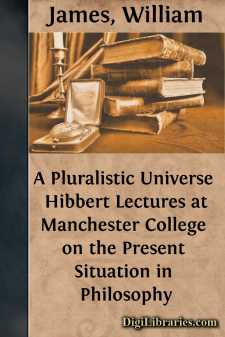Categories
- Antiques & Collectibles 13
- Architecture 36
- Art 48
- Bibles 22
- Biography & Autobiography 815
- Body, Mind & Spirit 144
- Business & Economics 28
- Children's Books 18
- Children's Fiction 14
- Computers 4
- Cooking 94
- Crafts & Hobbies 4
- Drama 346
- Education 58
- Family & Relationships 59
- Fiction 11835
- Games 19
- Gardening 17
- Health & Fitness 34
- History 1378
- House & Home 1
- Humor 147
- Juvenile Fiction 1873
- Juvenile Nonfiction 202
- Language Arts & Disciplines 89
- Law 16
- Literary Collections 686
- Literary Criticism 179
- Mathematics 13
- Medical 41
- Music 40
- Nature 180
- Non-Classifiable 1768
- Performing Arts 7
- Periodicals 1453
- Philosophy 65
- Photography 2
- Poetry 896
- Political Science 203
- Psychology 44
- Reference 154
- Religion 515
- Science 126
- Self-Help 85
- Social Science 83
- Sports & Recreation 34
- Study Aids 3
- Technology & Engineering 60
- Transportation 23
- Travel 463
- True Crime 29
Our website is made possible by displaying online advertisements to our visitors.
Please consider supporting us by disabling your ad blocker.
Pragmatism
by: William James
Categories:
Description:
Excerpt
The lectures that follow were delivered at the Lowell Institute in Boston in November and December, 1906, and in January, 1907, at Columbia University, in New York. They are printed as delivered, without developments or notes. The pragmatic movement, so-called—I do not like the name, but apparently it is too late to change it— seems to have rather suddenly precipitated itself out of the air. A number of tendencies that have always existed in philosophy have all at once become conscious of themselves collectively, and of their combined mission; and this has occurred in so many countries, and from so many different points of view, that much unconcerted statement has resulted. I have sought to unify the picture as it presents itself to my own eyes, dealing in broad strokes, and avoiding minute controversy. Much futile controversy might have been avoided, I believe, if our critics had been willing to wait until we got our message fairly out.
If my lectures interest any reader in the general subject, he will doubtless wish to read farther. I therefore give him a few references.
In America, John Dewey's 'Studies in Logical Theory' are the foundation. Read also by Dewey the articles in the Philosophical Review, vol. xv, pp. 113 and 465, in Mind, vol. xv, p. 293, and in the Journal of Philosophy, vol. iv, p. 197.
Probably the best statements to begin with however, are F. C. S. Schiller's in his 'Studies in Humanism,' especially the essays numbered i, v, vi, vii, xviii and xix. His previous essays and in general the polemic literature of the subject are fully referred to in his footnotes.
Furthermore, see G. Milhaud: le Rationnel, 1898, and the fine
articles by Le Roy in the Revue de Metaphysique, vols. 7, 8 and 9.
Also articles by Blondel and de Sailly in the Annales de Philosophie
Chretienne, 4me Serie, vols. 2 and 3. Papini announces a book on
Pragmatism, in the French language, to be published very soon.
To avoid one misunderstanding at least, let me say that there is no logical connexion between pragmatism, as I understand it, and a doctrine which I have recently set forth as 'radical empiricism.' The latter stands on its own feet. One may entirely reject it and still be a pragmatist.
Harvard University, April, 1907.
Contents
Lecture I
The Present Dilemma in Philosophy
Chesterton quoted. Everyone has a philosophy. Temperament is a factor in all philosophizing. Rationalists and empiricists. The tender-minded and the tough-minded. Most men wish both facts and religion. Empiricism gives facts without religion. Rationalism gives religion without facts. The layman's dilemma. The unreality in rationalistic systems. Leibnitz on the damned, as an example. M. I. Swift on the optimism of idealists. Pragmatism as a mediating system. An objection. Reply: philosophies have characters like men, and are liable to as summary judgments. Spencer as an example.
Lecture II
What Pragmatism Means
The squirrel. Pragmatism as a method. History of the method. Its character and affinities. How it contrasts with rationalism and intellectualism. A 'corridor theory.' Pragmatism as a theory of truth, equivalent to 'humanism.' Earlier views of mathematical, logical, and natural truth. More recent views. Schiller's and Dewey's 'instrumental' view. The formation of new beliefs. Older truth always has to be kept account of. Older truth arose similarly. The 'humanistic' doctrine. Rationalistic criticisms of it. Pragmatism as mediator between empiricism and religion. Barrenness of transcendental idealism. How far the concept of the Absolute must be called true. The true is the good in the way of belief. The clash of truths. Pragmatism unstiffens discussion.
Lecture III
Some Metaphysical Problems Pragmatically Considered
The problem of substance. The Eucharist. Berkeley's pragmatic treatment of material substance. Locke's of personal identity. The problem of materialism. Rationalistic treatment of it. Pragmatic treatment....







